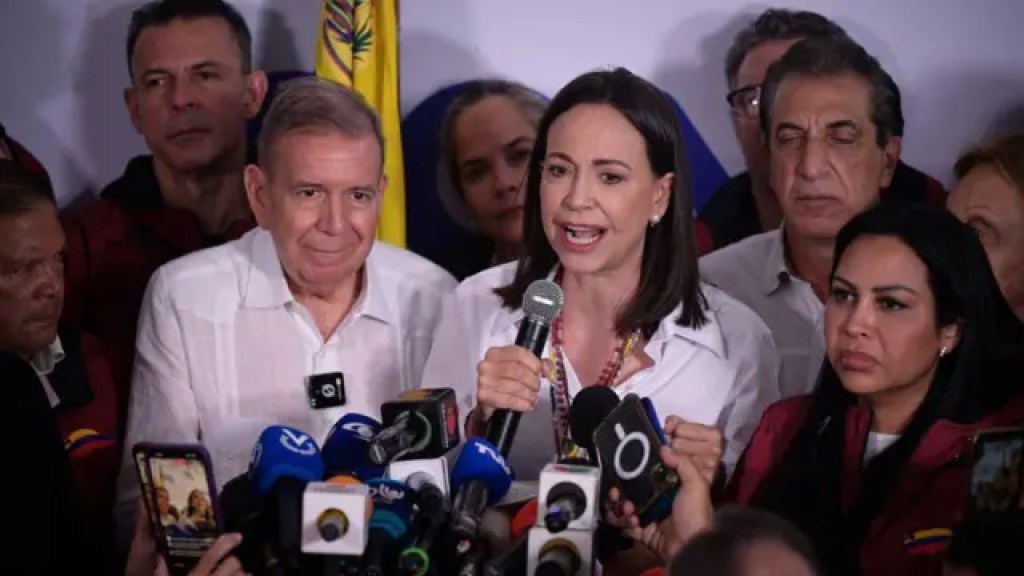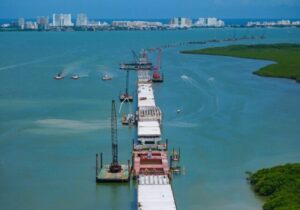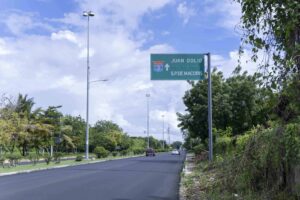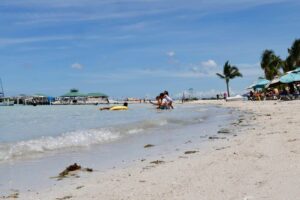
Venezuela’s National Electoral Council (CNE) announced on Sunday that Nicolás Maduro had won the presidential election amid allegations of fraud by the opposition.
Six hours after the official closing of the polling stations and after a tense wait, Elvis Amorosopresident of the CNE, said that with 80% of the tables counted and with a “convincing and irreversible” trend, Maduro was re-elected for a third term with 5,150,092 votes, 51.20%.
The opposition leader, Edmundo Gonzalezfor its part, would have obtained 4,445,978 votes, 44.2%.
The opposition, however, denounced irregularities after a day with a high turnout, which stood at 59%, according to the first bulletin offered by the electoral body, which is controlled by the ruling party.
Delay or terrorist attack
The enthusiasm that reigned during the day, which was peaceful, gave way to tension as the hours passed and the results of an election considered crucial and in which the opposition hoped to put an end to 25 years of Chavismo were not announced.
Amoroso attributed the delay to a “terrorist” attack which delayed the transmission of data, raising doubts in the face of opposition complaints.
Maduro echoed the remarks.
“Venezuela suffered an attack at night. A massive hack. We already know which country it came from. I’m not going to say. The trace is already there. A massive hack to the National Electoral Council’s transmission system because The demons did not want it to be totaled and the official bulletin to be given“, said the president.
Amoroso announced that he had asked the Prosecutor’s Office to initiate an investigation.
However, this is not the first time that the CNE has delayed delivering the results of an election, despite the fact that the Venezuelan electoral system is fully automated and, according to technicians, would allow a result to be offered an hour after the polling stations closed.

IMAGE SOURCE,GETTY IMAGES
The first reactions
The opposition has questioned the initial results that give Maduro victory.
“There is a new president-elect and it is Edmundo González, and everyone knows it,” he said. Maria Corina Machadobased on data from 40% of the minutes at their disposal.
González formed a political duo with Machado, the opposition leader who is disqualified from holding public office and who transferred her support to the former diplomat.
Machado said that, according to the records available to the opposition, González obtained 70% of the votes and won in all states.
“All rules have been violated. Our struggle continues”Gonzalez noted.
Maduro, for his part, called on his opponents to accept the results.
“This Constitution must be respected. The referee must be respected and Let no one try to tarnish this beautiful day“, said Maduro while celebrating the victory next to the Miraflores Palace.
But it was not only the Venezuelan opposition that expressed doubts.
The first to question the results was the president of Chile, Gabriel Boric.
“The Maduro regime must understand that the results it publishes are difficult to believe. The international community and above all the Venezuelan people, including the millions of Venezuelans in exile, demand total transparency of the minutes and the process, and that international observers not beholden to the government account for the veracity of the results.”
The Peruvian Foreign Minister, Javier González Olaechea, condemned “in all its extremes the sum of irregularities with intent to defraud by the Venezuelan government. Peru will not accept the violation of the popular will of the Venezuelan people.”
Other countries in the region, such as Guatemala and Uruguay, joined in the criticism. However, congratulations came from Honduras and Cuba for Maduro.
The foreign ministries of nine Latin American countries (Argentina, Costa Rica, Ecuador, Panama, Paraguay, Peru, Dominican Republic and Uruguay) had requested a “transparent vote count.”
Antony BlinkenUS Secretary of State said: “We are seriously concerned that the announced result does not reflect the will or the votes of the Venezuelan people.”

IMAGE SOURCE,GETTY IMAGES
This prompted a response from Venezuelan Foreign Minister Yván Gil.
“Venezuela denounces and warns the world about an intervention operation against the electoral processour right to free self-determination and the sovereignty of our homeland, by a group of foreign governments and powers.”
Before the publication of the results, Omar Barboza, representative of the opposition, warned: “What many representatives of Latin American and European countries have told us (…) is that They will not recognize a result that is not supported by the minutes.“.
Cross-complaints
Since 2013, the opposition has not seen so many possibilities of defeating Chavismo despite the allegations that the process was not fair and did not meet the necessary conditions of transparencyExamples of this were the disqualification of Machado, the fact that the process was held without the presence of recognised international observers such as those from the OAS or the European Union (EU) or the obstacles imposed so that Venezuelans abroad could vote.
The day also saw some irregularities, such as the dissemination of exit polls while voting was taking place by the media and state officials.
Maduro hoped that the wear and tear of the crisis would not prevent a new victory for Chavismo. And to boost the votes, they were held on an emblematic date for the government: Hugo Chavez’s birthday.
The current president blames the country’s problems on US-led international sanctions against his government, although the difficulties began much earlier.
“There is a battle between good and evil, those who hate and want revenge and those who love and want Venezuela.“We have weathered all the storms and we want to move forward in harmony so that everyone can continue with their own endeavors and work towards our economic recovery,” Maduro had said on Sunday when he went to vote.

IMAGE SOURCE,GETTY IMAGES
The key role of the CNE
The CNE is the body in charge of organizing the elections and giving the official results, but its role has been questioned by the opposition, which denounced that it was not given all the minutes of the vote counts.
The board of directors of the organization is made up of five members who were appointed in August 2023: Elvis Amoroso, Rosalba Gil, Carlos Quintero, Aime Nogal and Juan Delpino.
The first three are considered representatives of the ruling party. and the last two from the opposition.
Given Amoroso’s past as a parliamentarian for the ruling PSUV (United Socialist Party of Venezuela) and his role in the disqualification of María Corina Machado when she was in charge of the Comptroller’s Office, some opposition leaders questioned his appointment, saying that it was a provocation that “only seeks to promote abstention.”
In mid-June, rector Juan Delpino denounced that Amoroso had been making unilateral decisions since March without calling the other rectors. Amoroso rejected these accusations as unfounded.
Precisely Delpino was not present when the first results were announceds.
Given the delay in the publication of results, the opposition feared that the CNE might act in favor of the ruling party.

IMAGE SOURCE,GETTY IMAGES

IMAGE SOURCE,GETTY IMAGES
Analysis: A controversial and disputed result
Norberto Paredes, BBC Mundo’s special correspondent to Venezuela
It was past midnight in Venezuela and expectations for the results were at their highest.
The CNE’s statements ended that expectation, but not the uncertainty about what will happen in Venezuela in the hours and days following this controversial announcement.
The ruling party always appeared victorious. Throughout the election day and especially after the polls closed, several Chavista leaders hinted that they had already won.
The celebrations at Miraflores Palace began at nightfallshortly after the polls closed. To the rhythm of salsa and reggaeton, many Maduro supporters danced and celebrated victory.
But in the voting centers of Caracas A Chavista victory has never been so evident.
At the Andrés Bello High School, one of the largest polling stations in the Venezuelan capital, a woman told me that she had been waiting in line for two hours, but that she was willing to spend the whole day there if necessary.
A few kilometers away, at the Amanda de Schnell School, located in the El Valle parish, which in the past was a bastion of the Chavista movement, several neighbors, who had remained a couple of hours under the harsh Caracas sun to vote, told me that the economic crisis had forced them to vote for the opposition for the first time: “It is now impossible to justify Maduro’s government.”
Something that could be circumstantial, but that could also be open to interpretation, is that one of the few centers where I did not see long queues was at the Manuel Palacio Fajardo school, in the 23 de enero parish, a populous area of Caracas. known for being one of the great bastions of the Chavista movement.
Former Venezuelan President Hugo Chavez used to vote there, and his daughter Maria Gabriela Chavez still votes there. When she came to exercise her right at 11:30 in the morning, there were barely a dozen people waiting to vote, most of whom told me they were going to vote for the opposition candidate.
The opposition seems to have a less clear understanding of the Chavista victory. Minutes after the announcement, protesters banged pots and pans and cried fraud in eastern Caracas.
The next few hours will likely mark another great chapter in the turbulent political history of Venezuela this century.
Source: BBC




